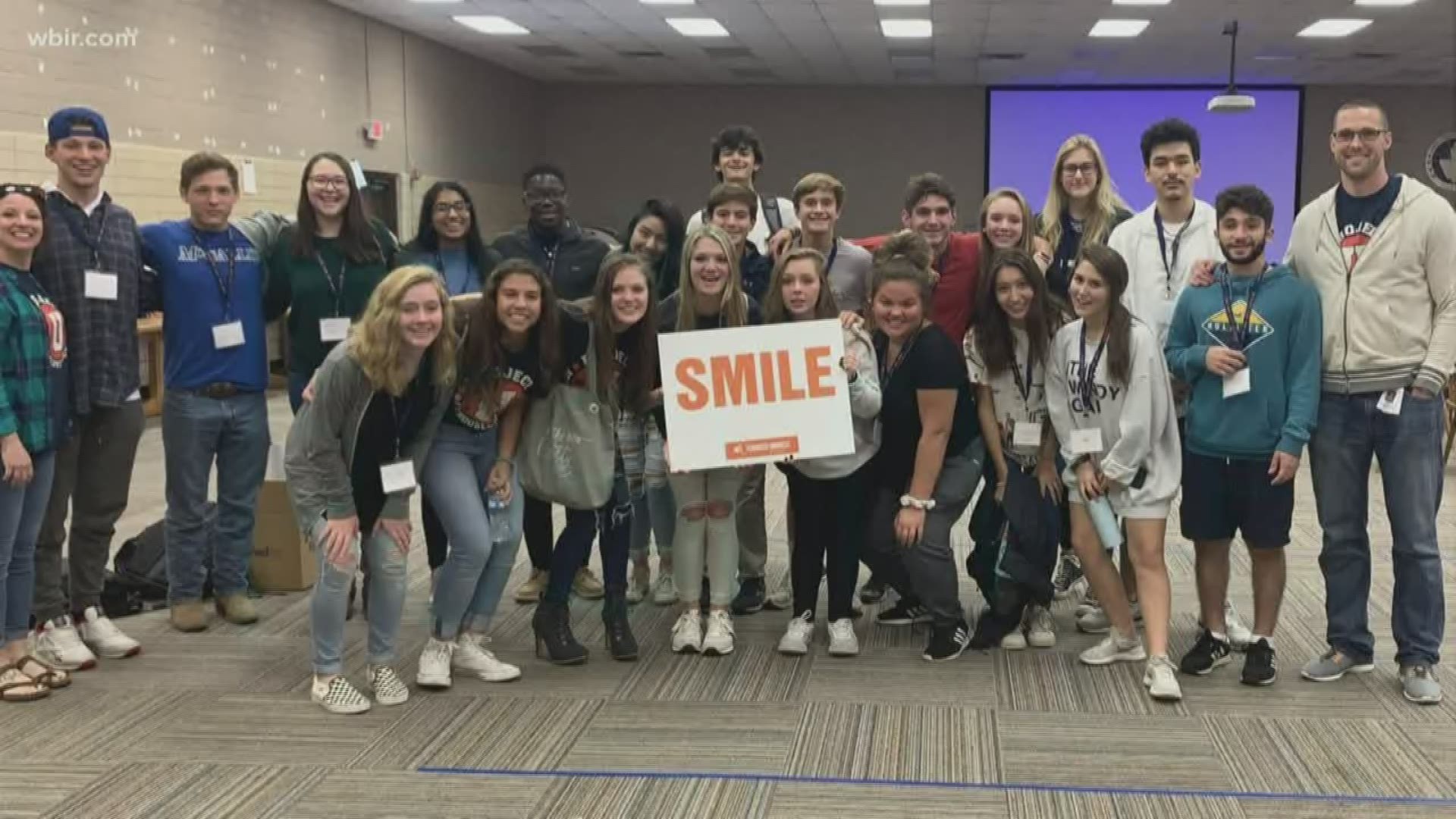FARRAGUT, Tenn. — Six Farragut High School students have committed suicide in three years.
Now, suicide is not just a Farragut High problem. School communities across East Tennessee are suffering.
In fact, Knox County Health Department surveyed students from middle school and high school in 2017 and 2018 and found 1 in 5 students had seriously considered suicide.
This is what one veteran principal at Farragut High is doing to turn that around.
"If we don’t talk about it, we’re never going to get a real handle on what’s going on with our kids," said Dr. John Bartlett, Farragut High's principal.
Bartlett may be new to Farragut High, but he knows the pain of losing a student to suicide.
HEAR FROM THE MOTHERS OF THESE STUDENTS: The Reality of Suicide
Bartlett was principal at Bearden High for a decade. He spent a year as Secondary School Supervisor for Knox County Schools but missed young people.
"Suicide touches everybody, especially in this community. These kids go to church together, play ball together," Bartlett said.
He felt called to Farragut High.
"We have to tackle this issue," Barlett said.
After months of research, his first priority at Farragut was to create a positive, inclusive culture across campus.
"One of the main things we can do as a high school is build relationships with students," Bartlett said.
He immediately moved his office just off the main hallway, and the door is always open.
"I want them to be able to walk in and say, 'Hey, I’ve got a problem. I need to talk to you,'" Bartlett said.
He also established a student-teacher advisory structure where every student is known by at least one or two staff members all four years.
"That’s not going to stop suicides. What that does, it gives us the ability to identify kids that may be going through a hard time," Bartlett said.
Suicide assessments are routine to screen students who might have a suicide risk.
"We’ve done over 45 suicide assessments so far this year," Bartlett said. "We get those students identified, and we take them to counselors."
For Bartlett, the reality of suicide is painfully personal.
"I wrote three suicide letters myself when I was in high school," Bartlett said.
His parents divorced and Bartlett experienced dark times.
RELATED: 'Don’t be afraid to ask for help' | Suicide loss survivors gather to lift each other up and heal
"I’ve been there with kids. I know how hard life is," Bartlett said.
Beginning in January, Bartlett will teach the entire student body a new curriculum blending social, emotional learning and brain health.
"It’s really about building capacity in students to overcome those hard things in life," Bartlett said. "We’ve got to tell kids that life is not perfect, and we can’t expect them to be perfect."
Failure is one of Bartlett’s most important lessons.
"I’ve given my kids permission to fail," Bartlett said. "In fact, I want my students to fail at something every day. Failure is the most important part of the learning process."
Bartlett also stresses sleep.
"I’d rather you sleep than study. I’ve had some parents say, 'Did you really say that to my kid?' and I say, 'Absolutely,'" Bartlett said.
"What you’re finding out with a lot of kids that commit suicide, sleep deprivation is a huge factor. Their brain never stops so they’re constantly flooding with information, and their brain is just saying, 'I can’t do this anymore.'"
He’s even added a few stress relievers like ping pong tables.
When asked about how he feels about the mental health of his student body, Bartlett said it depends on the day.
"This is a good place. We’re creating a good culture," Bartlett said. "I think right now we’re in a good spot, but that doesn’t mean tonight it can’t change."
They will continue to talk about suicide openly and encourage one another, whether its posted notes, inspiring chalk walks or student pictures on banners.
"We want kids to walk in here and say, 'I belong here. I’m home,'" Bartlett said.
Like a family, Bartlett said it is everyone’s responsibility to make sure every student is identified, cared, loved, pushed hard academically, but with realistic expectations.
"Can I guarantee that we’re not going to lose any more students? No, but we’re going to work our tail off to make sure we’re doing everything we can for every student in this building," Bartlett said.

